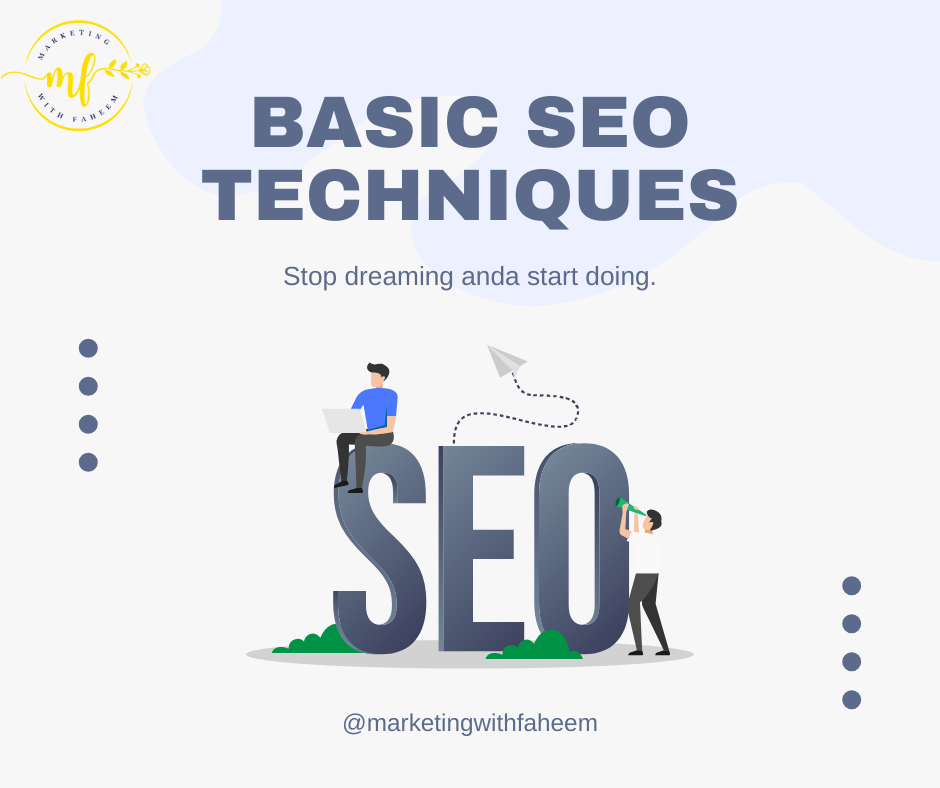Unlocking the Power of SEO Marketing: Strategies for Success


Introduction
In today’s digital age, where any business can be built or run with offline visibility, it has become possible to master the art of OSCO marketing. SEO, as the framework for search engine optimization, is the process of optimizing your online content to rank higher in search engine results pages (SERPs). In this blog post, we will dive deep into associate marketing, explore its important points, and unveil cool products to take your brand to new heights.
Understanding SEO Marketing
What is SEO marketing?
SEO marketing includes a number of strategies aimed at increasing website visibility and attracting organic traffic from search engine results. It involves optimizing various elements, including content, keywords, and technical aspects, to align with search engine algorithms and user intent.
Why is SEO marketing important?
The importance of SEO marketing lies in its ability to drive targeted traffic to your website, increase brand interest, and establish credibility in your field. By securing top positions in search engine results, businesses can benefit from a steady stream of qualified leads and conversions, which can ultimately boost revenue and growth.
Key Components of SEO Marketing
Keyword Research and Analysis
Keyword research forms the foundation of SEO marketing. By identifying relevant keywords and phrases that your target audience is searching for, you can tailor your content to their needs and preferences. Use tools like Google Keyword Planner, SEMrush, or Ahrefs to gain valuable insight into search volume, competition, and user intent.
on-page optimization
On-page optimization involves optimizing individual web pages to improve their search engine rankings and attract more organic traffic. This includes optimizing content with title tags, meta descriptions, headers, and relevant keywords, as well as ensuring that.
Created clean URLs and implemented internal linking strategies to enhance crawlability and the user experience.
off-page optimization
Off-page optimization focuses on building authority and trust for your website through external factors like backlinks and social signals. Quality backlinks from reputable websites signal to search engines that your content is trustworthy and valuable, increasing your site’s ranking. Additionally, connecting with your audience on social media platforms can increase the reach and visibility of your content.
Technical SEO
Technical SEO involves optimizing the technical aspects of your website to improve its overall performance in crawling, indexing, and search engine rankings. This includes optimizing site speed and mobile responsiveness, fixing crawl errors, optimizing site structure and navigation, and applying schema markup to enhance search engine visibility and user experience.


Strategies for Effective SEO Marketing
Content creation and optimization
High-quality, relevant content is at the heart of successful SEO marketing. Create informative, engaging content that addresses the needs and interests of your target audience by naturally incorporating relevant keywords. Update your content regularly to keep it fresh and relevant, and take advantage of multimedia formats like videos, infographics, and podcasts to diversify your content strategy and attract different audiences.
User Experience (UX) and SEO
User experience plays an important role in SEO marketing. A well-designed, user-friendly website not only increases engagement and conversion rates but also signals to search engines that your site offers a positive user experience. Focus on improving site navigation, reducing page load times, and optimizing for mobile devices to create a seamless browsing experience for your visitors.
Local SEO
For businesses targeting local customers, optimizing for local search is essential. Claim and optimize your Google My Business listing, ensure consistency in your NAP (name, address, phone number) information across online directories, and more to boost your local search visibility and attract more traffic to your physical location. Do more for. Get positive reviews from satisfied customers.
Measuring SEO Success
To assess the effectiveness of your SEO marketing efforts, it is important to track key performance indicators (KPIs) and analyze relevant metrics. Monitor changes in organic traffic, keyword rankings, conversion rates, and bounce rates over time to assess the impact of your SEO strategies. Use tools like Google Analytics, Google Search Console, and third-party SEO analytics platforms to gather actionable insights and make data-driven decisions to optimize your SEO campaigns.
Common SEO marketing mistakes to avoid Keyword stuffing
Avoid overloading your content with keywords in an attempt to manipulate search engine rankings. Instead, focus on creating high-quality, informative content that naturally incorporates relevant keywords and provides value to your audience.


Ignoring technical SEO
Neglecting technical SEO can hinder your website’s performance in search engine rankings. Take the time to address technical issues like slow page load times, mobile responsiveness, and crawl errors to ensure optimal visibility and user experience.
Not optimized for mobile
With the increasing number of users accessing the Internet via mobile devices, optimizing your website for mobile is no longer optional; it is essential. Make sure your site is responsive and mobile-friendly to provide a seamless browsing experience on all devices and improve your chances of ranking higher in mobile search results.
Ignoring local SEO
If your business relies on local customers, neglecting local SEO may limit your visibility in local search results. Take advantage of local search strategies like optimizing your Google My Business listing, targeting location-specific keywords, and developing positive reviews to grow your local search presence and attract more local customers.
SEO (Search Engine Optimization) marketing is a digital marketing strategy aimed at improving a website’s visibility in search engine results pages (SERPs). It involves optimizing various aspects of a website to rank higher in organic search results, driving more traffic and potential customers to the site.
The key components of SEO marketing include keyword research, on-page optimization, off-page optimization, technical SEO, content creation, and user experience optimization. Keyword research helps identify the terms and phrases your target audience is searching for, while on-page optimization involves optimizing content, meta tags, and headers. Off-page optimization focuses on building backlinks from reputable websites, while technical SEO ensures that your website is crawlable and indexable by search engines. Content creation involves producing high-quality, relevant content that resonates with your target audience, and user experience optimization focuses on creating a seamless browsing experience for visitors.
You can measure the success of your SEO marketing campaign using various metrics, including organic traffic, keyword rankings, backlink profile, conversion rate, and return on investment (ROI). Tools like Google Analytics, Google Search Console, and third-party SEO software can help track these metrics and provide valuable insights into the performance of your SEO efforts. Regular monitoring and analysis of these metrics can help you identify areas for improvement and make data-driven decisions to optimize your SEO strategy for better results.
